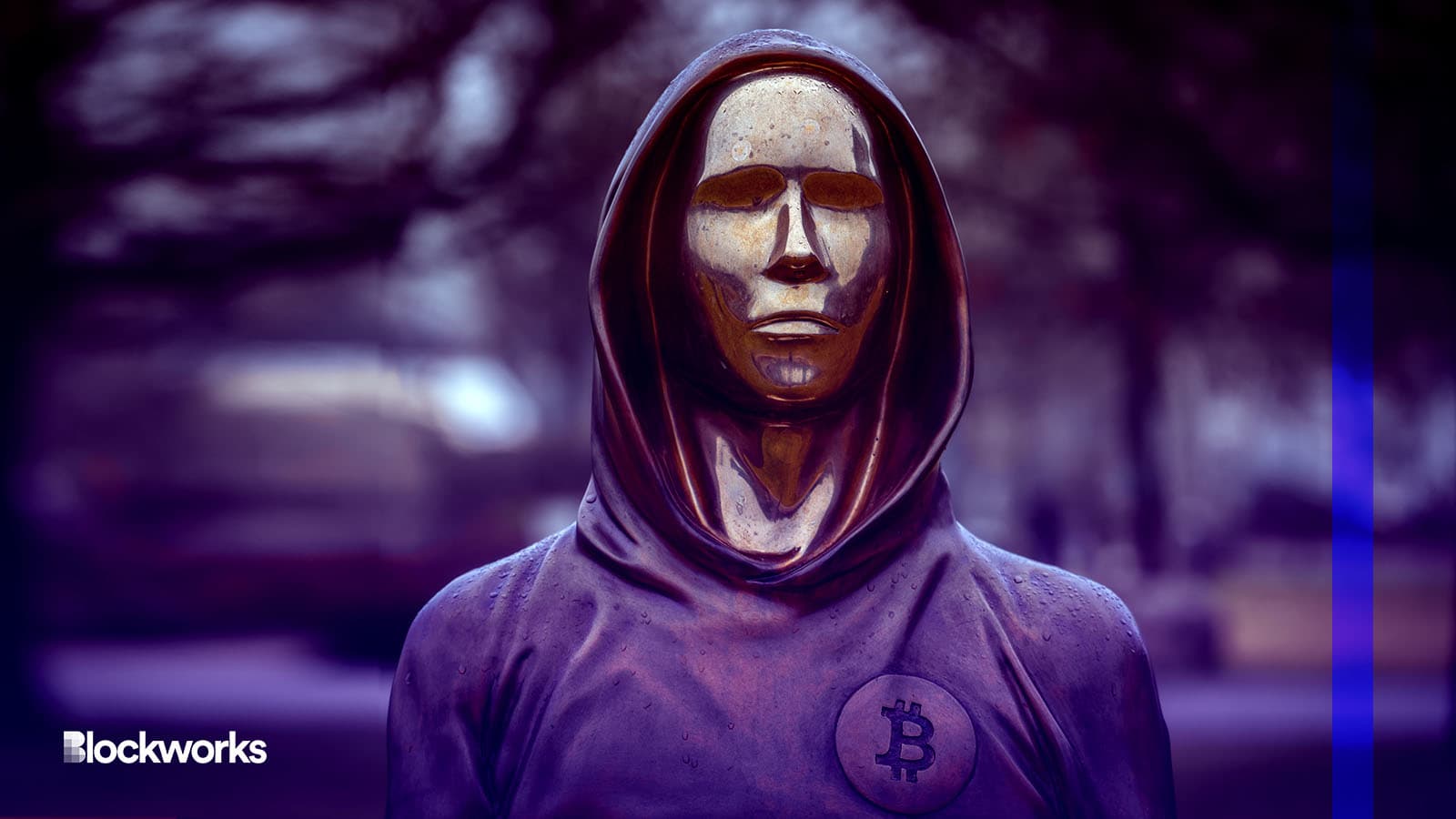Bitcoin held by Coinbase rivals Satoshi Nakamoto’s in size
Coinbase holds about 5% of the total bitcoin in circulation, according to on-chain analytics firm Arkham Intelligence

Statue dedicated to Satoshi Nakamoto, Budapest, Hungary; Source: Szabolcs Magyar/Shutterstock, modified by Blockworks
Crypto exchange Coinbase currently holds over $25 billion in bitcoin, establishing itself as the world’s largest bitcoin custody entity, with nearly 5% of all bitcoin in circulation.
Coinbase’s holdings are roughly equivalent to the stash held by Satoshi Nakamoto, the enigmatic individual or group credited with creating bitcoin and authoring the original white paper in 2008, according to Arkham Intelligence.
The identified sum was spread across 36 million deposit and holding addresses used by Coinbasein, Arkham reported in a Saturday post on X. The largest cold wallet identified held about 10,000 bitcoin.
But the blockchain analytics company suggested that the exchange probably holds thousands more bitcoins that have not been categorized yet, based on latest financial data from Coinbase. Ongoing analysis will aim to uncover these additional addresses.
Coinbase’s custody of ether (ETH) is significantly smaller when compared to its bitcoin holdings. As per Arkham’s data, the exchange held about $2.6 billion in ether.
The fact that Coinbase may hold as much bitcoin (BTC) as Nakamoto is notable because it is widely believed that the mysterious bitcoin creator mined an impressive amount of bitcoin, with estimates ranging from 600,000 BTC (equivalent to $13 billion) to as much as 1.1 million BTC ($23.8 billion) during the cryptoasset’s early years.
Tracking the whereabouts of all these bitcoins is considered somewhat challenging due to their dispersion across numerous addresses.
Should the upper estimate prove accurate, Nakamoto would find themselves among the top 50 billionaires globally, closely trailing Chanel chairman Alain Wertheimer.
The identity of the Bitcoin creator has remained unverified, although one public profile which claimed association with Nakamoto indicated a location in Japan.
In Nakamoto’s writings, they variously used both American and British English spellings, as well as idiomatic expressions. This has led some to question whether the inventor’s claimed Japanese identity is accurate.
There have also been observations regarding the timestamps on Nakamoto’s comments, which have led some to speculate that they might not have been located in Japan while working on Bitcoin.
Get the news in your inbox. Explore Blockworks newsletters:
- The Breakdown: Decoding crypto and the markets. Daily.
- 0xResearch: Alpha in your inbox. Think like an analyst.






